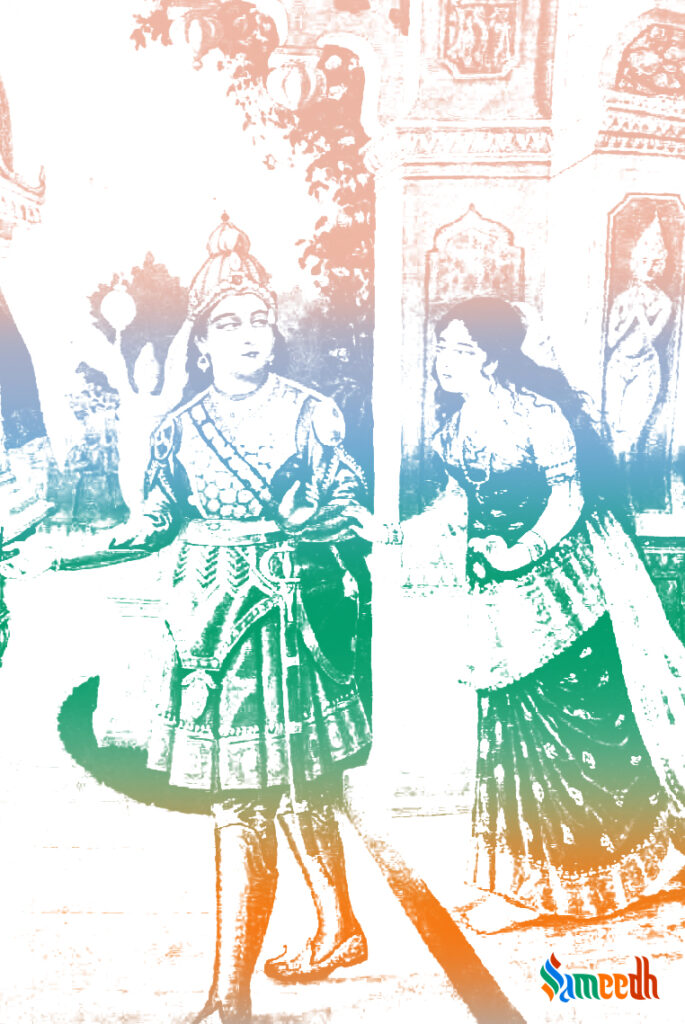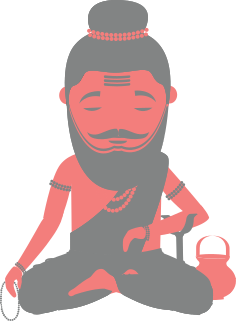The life story and significance of Arjun’s brave son.

ORIGIN
Abhimanyu was son to Arjun, the third Pandav brother and one of the heroes of the great Indian epic Mahabharat. The name is synonymous with pride, valiance, self respect and means the one who wishes for battle. His mother was Subhadra, the Yadav princess and sister to Krishna, one of the Hindu god Vishnu’s Dashavatar or reincarnation. This also made Krishna his uncle. Abhimanyu plays a significant role in the battle of Kurukshetra, the war between Pandavas and Kauravas.
He is believed to be a reincarnation of the Moon god Chandra’s son, Varchas. When the Pandavas were sent away for an exile of 12 years, that is when Abhimanyu was born. As Subhadra was Arjun’s second wife, she did not accompany them to exile. She stayed at her maternal home, Dwarka, where Abhimanyu was brought up according to that culture. He was taught the skills of warfare by his uncles, Krishna and Balram. The bow of Rudra, the spectacular archer, was given to Abhimanyu by Balaram. Like his father Arjun who was renowned for his archery, Abhimanyu too practised the art with divinity.
Abhimanyu got married to Uttara and they had a son named Parikshit who then went on being the sole heir of the Pandavas.
SIGNIFICANCE
Abhimanyu had a pivotal role in Mahabharat. He was privy to a secretive piece of information regarding a particular warfare strategy. Despite that, it also ends up becoming the reason for his demise during the war.
When Subhadra was pregnant with Abhimanyu, Arjun one day was explaining the formation of Chakravyuh to her. Chakra means wheel or circle, and it was essentially a circular maze . This was a military formation to surround enemies from all sides and eventually trap and force them into defeat or surrender. Along with Subhadra, Abhimanyu in her womb too was listening and learning the steps and alignment. But Subhadra began to feel sleepy after a point and was gradually asleep. Arjun too was called by Krishna to discuss something and unfortunately left right before explaining how to exit the Chakravyuh. Abhimanyu remained in oblivion about the last step.
Mythologically, it is believed that Chandra had given permission for only 16 years for his son to live on the Earth. Keeping this in mind as the battle takes place when Abhimanyu is 16, it is said that Krishna deliberately had interrupted Arju, so his son could not learn how to exit from his own creation. The breach of Chakravyuh was taught to Arjun by his teacher, Dronacharya as he was his favourite pupil. So only 3 people were aware of this knowledge but Abhimanyu did not know how to step out from it.
On the 13th day of the battle, Krishna and Arjun were sent away to an extreme end of the battlefield. A Chakravyuh was then created causing massive destruction for the Pandavas. A mighty Abhimanyu stepped in and even successfully killed a lot of kings and soldiers. But as Drona realised he was being pushed in and getting trapped, he ordered Karna to shoot arrows at him, resulting in his death.
PHYSICAL FORM
Abhimanyu had a sturdy build and looked just as powerful as he was. He was the grandson of Indra, god of sky, displaying massive strength and force. He had a broad chest, long arms, large eyes and brawn of a bull. His physique alone was intimidating for his enemies. He had a handsome, attractive face, owing to the beauty of the moon. He was also agile, his ability to quickly pounce at opponents and defend himself in the war helped him immensely. The row he carried only added to his majestic frame. He was one to combat with bravery and vigour.
